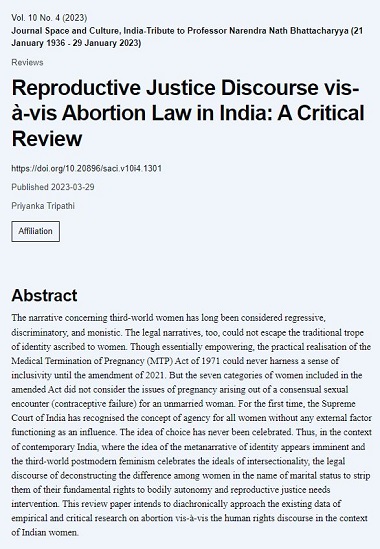
The narrative concerning third-world women has long been considered regressive, discriminatory, and monistic. The legal narratives, too, could not escape the traditional trope of identity ascribed to women. Though essentially empowering, the practical realisation of the Medical Termination of Pregnancy (MTP) Act of 1971 could never harness a sense of inclusivity until the amendment of 2021. But the seven categories of women included in the amended Act did not consider the issues of pregnancy arising out of a consensual sexual encounter (contraceptive failure) for an unmarried woman. For the first time, the Supreme Court of India has recognised the concept of agency for all women without any external factor functioning as an influence. The idea of choice has never been celebrated. Thus, in the context of contemporary India, where the idea of the metanarrative of identity appears imminent and the third-world postmodern feminism celebrates the ideals of intersectionality, the legal discourse of deconstructing the difference among women in the name of marital status to strip them of their fundamental rights to bodily autonomy and reproductive justice needs intervention. This review paper intends to diachronically approach the existing data of empirical and critical research on abortion vis-à-vis the human rights discourse in the context of Indian women.
Reproductive Justice Discourse vis-à-vis Abortion Law in India: A Critical Review. Space and Culture, India, 10(4), 6-17.